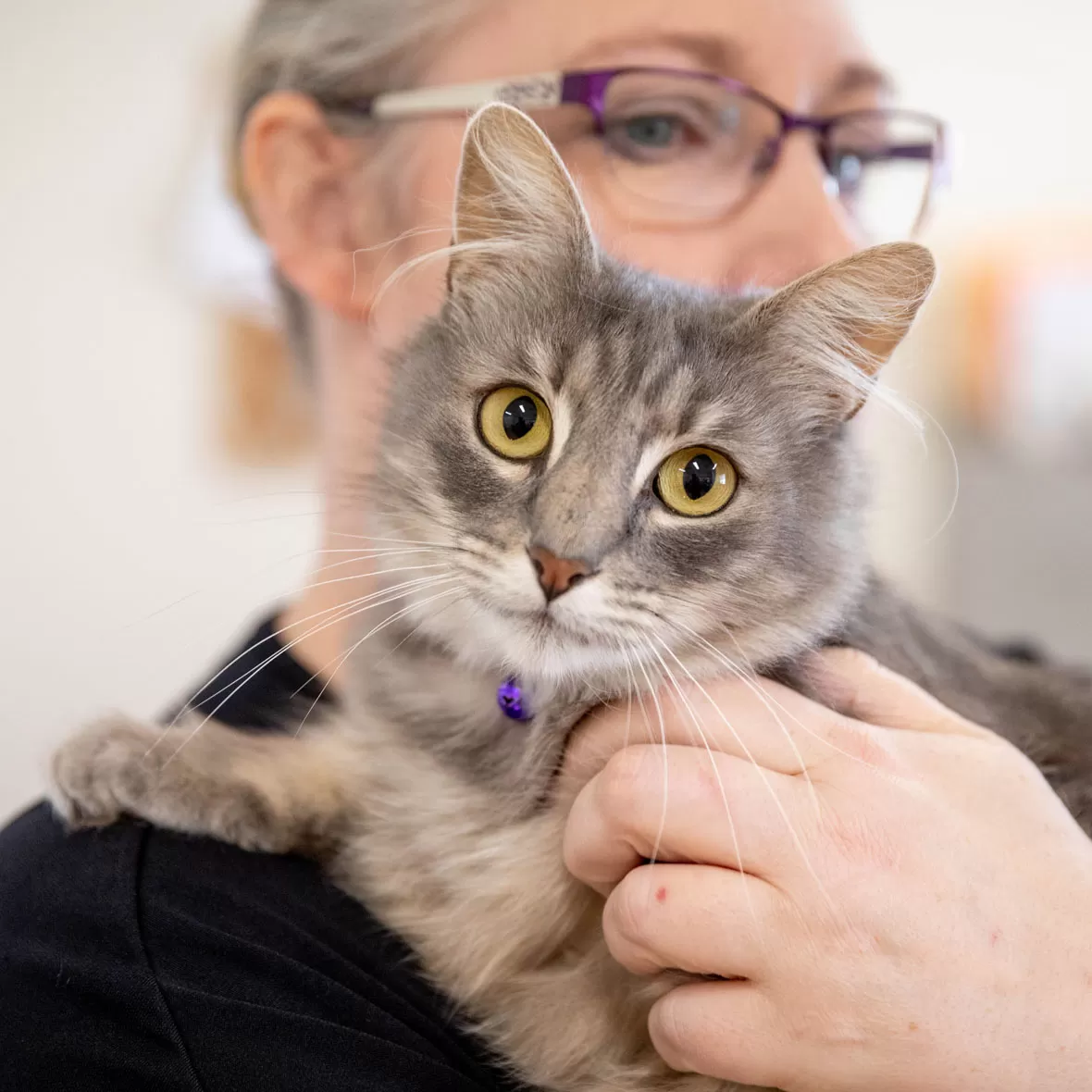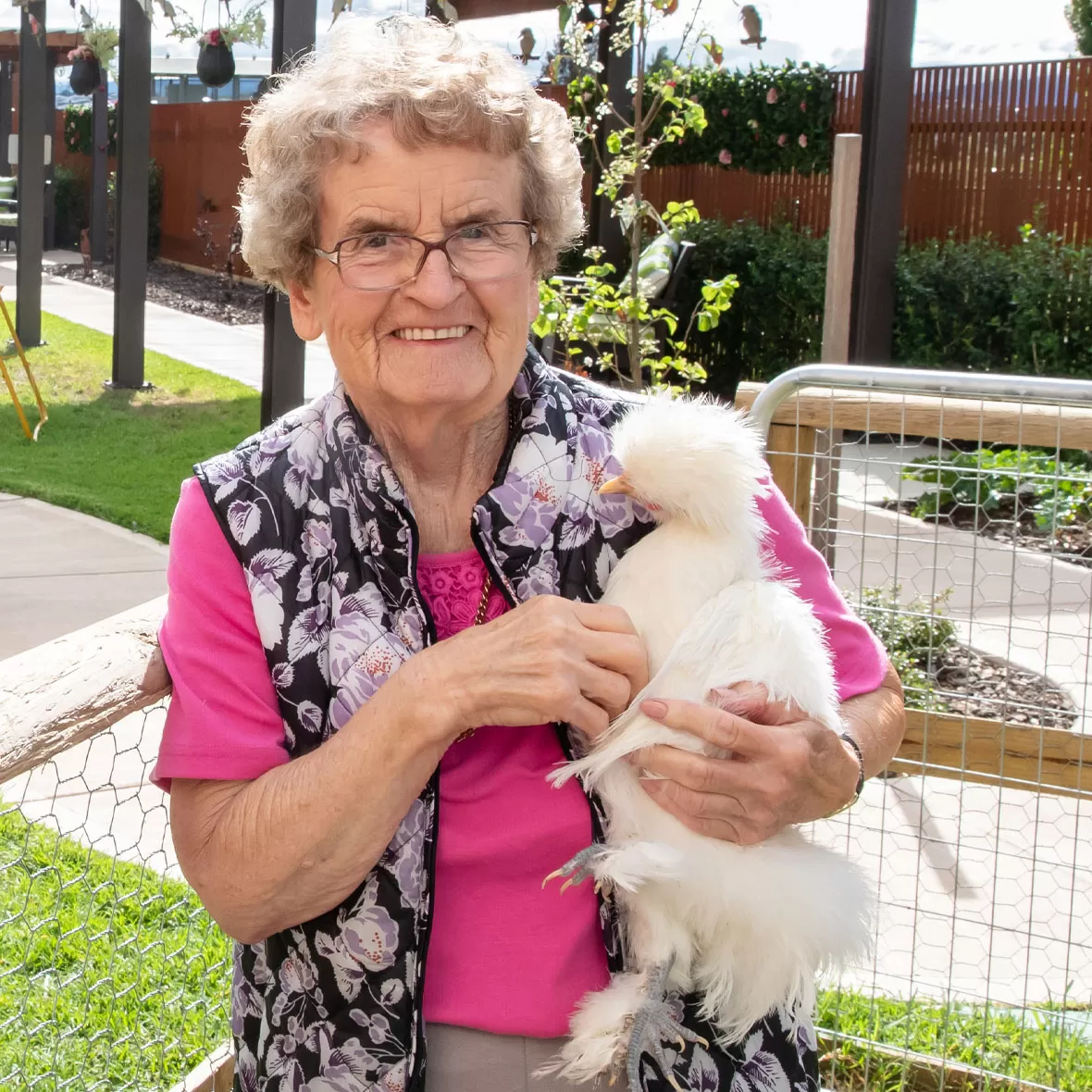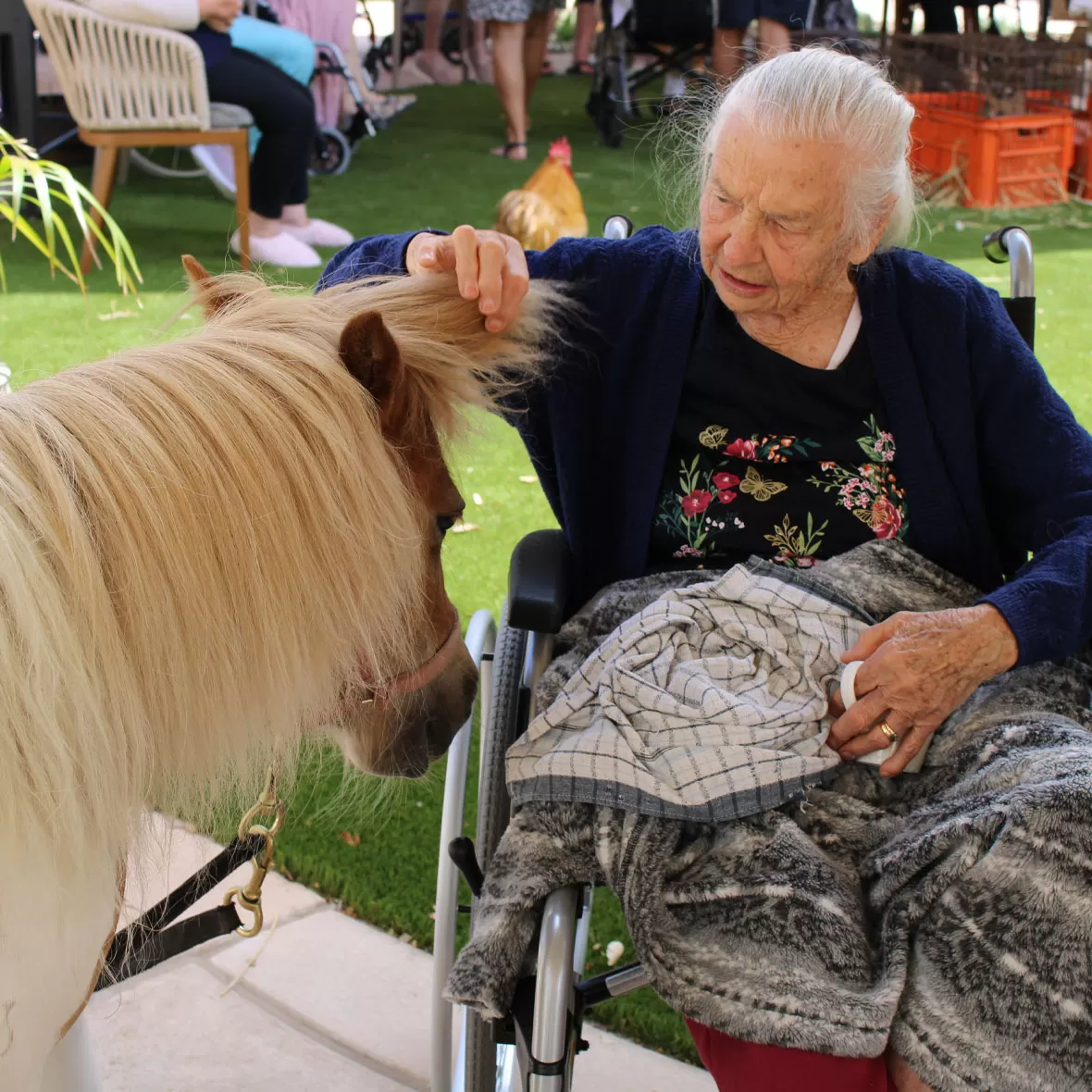
Pets in our
Care Communities
Zeus brings joy to Cameron Park Care Community
Reasons why animals are important in aged care

Animals provide companionship
Many residents are no longer able to care for their own pets so visiting pets often fill the gap by providing the companionship that they miss, which can also reduce feelings of loneliness.

Animals provide comfort
The act of cuddling and hugging animals can be soothing for residents, helping to reduce stress and anxiety and combat feelings of depression.

Animals can prompt treasured memories
Interaction with certain types of animals often reminds residents of pets they owned growing up, this is particularly beneficial for our residents who are living with dementia.

Animals can improve overall health
By encouraging positive emotions, social interaction and increased mental and physical activity levels, overall health and wellbeing can improve.
Commonly asked questions about pets in our Care Communities
-
Family pets are welcome to visit, although we ask our families to ensure that pets don’t enter the dining room during mealtimes. In some circumstances, you may be able to bring your pet to live with you although this needs to be agreed in advance with the General Manager.
-
Each Care Community has their own rules and policies when it comes to pets and animals. If you would like more information as to whether your local Care Community accepts pets or has regular animal visitors, please send us an email or give us a call.
-
Pet therapy is also known as animal-assisted therapy (AAT), which is a formal, structured set of sessions that helps people reach specific goals in their treatment. Pet therapy can enhance an individual’s quality of life with ongoing physical and cognitive benefits. In our Care Communities, this can take many forms. It may be a formal program, having one’s own pet live with the resident in our care, or enjoying regular visits from a family pet.
-
Due to the calming nature of animals, people living with dementia can benefit greatly from pet therapy. Animals are able to help calm and comfort people with cognitive decline, even helping them to communicate and speak. An animal can encourage a person with dementia to express themselves through non-verbal communication and action. There is evidence to suggest pet therapy can help a person with dementia re-engage with what is happening around them and bring back old memories.



